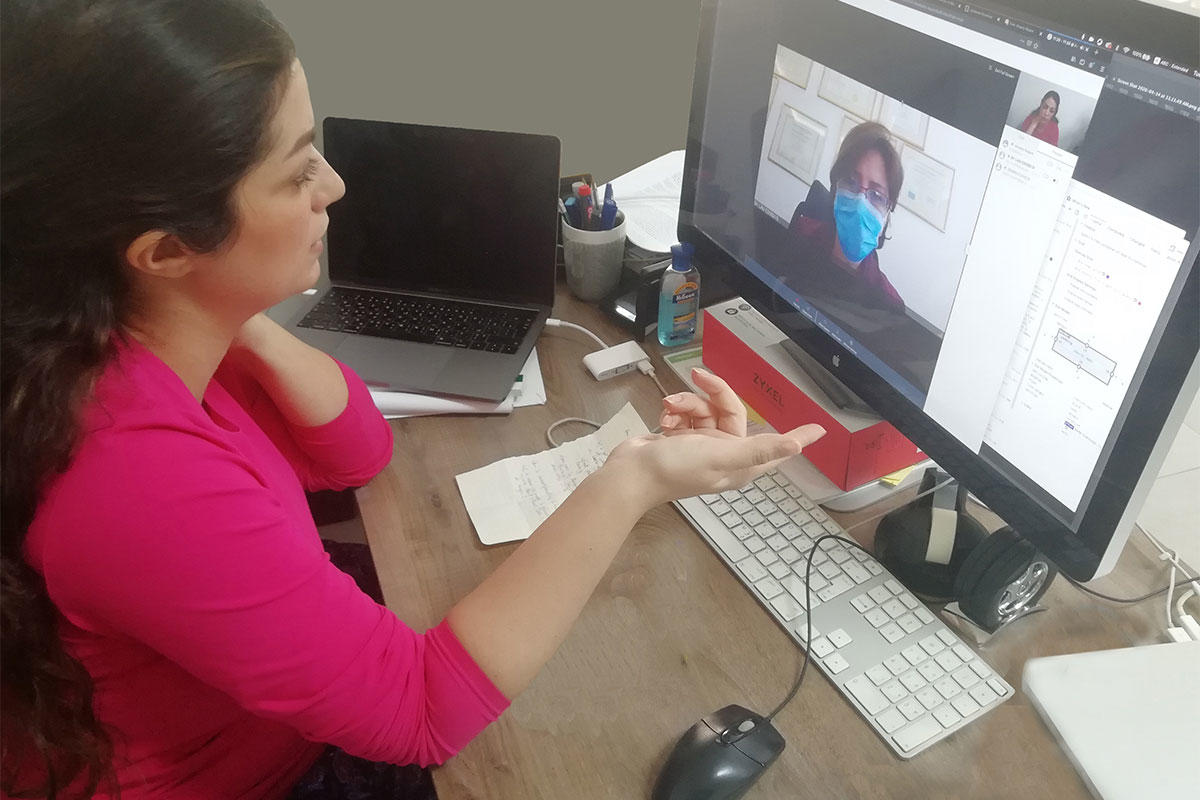LAU Coronavirus Telecare: An Innovative Approach to Healthcare
An initiative by the School of Medicine effectively addresses community concerns while fulfilling a civic duty.
In line with its Strategic Plan, LAU has been on the frontlines of the fight against COVID-19, serving Lebanon beyond university walls, from North to South.
Through its latest initiative, the Gilbert and Rose-Marie Chagoury School of Medicine (SOM) partnered with the LAU Medical Center-Rizk Hospital to launch the LAU Coronavirus Telecare, an online platform that addresses people’s concerns and guides them on how to respond to the COVID-19 pandemic.
This virtual clinic, powered by SOM volunteer physicians, offers up to 24 free-of-charge consultations every day, Monday through Friday. By minimizing unnecessary exposure, it aims to help contain the spread of COVID-19.
“Taking the doctor to the patient rather than bringing the patient to the doctor” – especially where the latter’s trip could place the wellbeing of that patient or another patient at risk – “has been one form of answering to the core mission of the SOM in fulfilling our civic responsibility,” noted SOM Dean Michel Mawad.
“The platform is intuitive and easy-to-use,” said Assistant Vice President for Information Technology Camille Abou-Nasr. Callers can be matched with a physician from the safety of their homes and with only a few clicks, without having to install an app on their computers or mobile phones. “Privacy is of paramount importance, and was built into the platform’s design,” he added, listing some of the security features.
“Patients have the option to chat with or without activating the camera; the links we provide expire after the call so no one can ‘intrude’ on another person’s call; and sessions cannot be recorded.”
Clinical Professor and Division Head of Infectious Diseases Rola Husni Samaha explained that physicians from across specialties have volunteered to answer questions and dispel myths. Patients who are showing symptoms and require testing are referred to an Infectious Diseases specialist who will follow up on their individual cases.
On the giving end, the experience has been rewarding for Associate Professor and Assistant Dean for Graduate Medical Education Rajaa Chatila. “Knowing that I can help others and alleviate their concerns is something that means a lot to me,” she said, adding that the flexibility of holding the sessions from any convenient location has been a plus.
The initiative is the precursor to a larger, more comprehensive online service that SOM intends to provide, according to Dr. Mawad. A remote consultation will put agency in the hands of patients, who will be able to email, chat, call, or videoconference with their doctors to describe symptoms, voice their concerns, discuss testing results and response to treatment, and ask questions about medical or surgical management. This would serve as an initial screening visit, a clinical follow-up, a yearly check-up or follow-up on a monitoring device.
“The LAU Coronavirus Telecare will give us the opportunity to test and explore all possible logistics and options in an effort to establish the most patient friendly, technically robust telemedicine system that adheres to the strictest guidelines of patient confidentiality,” declared Dr. Mawad.
